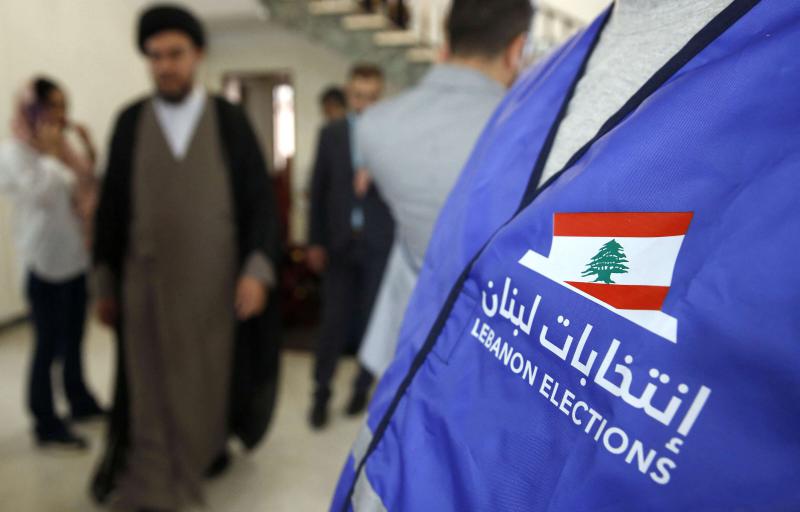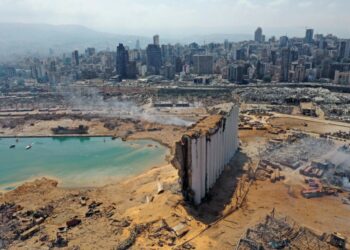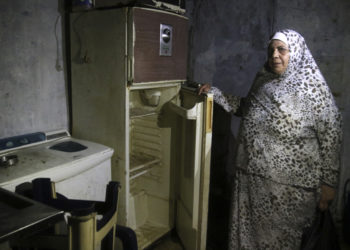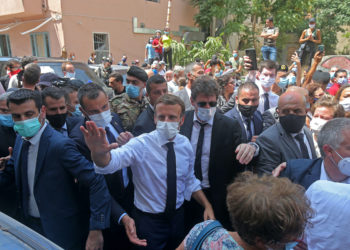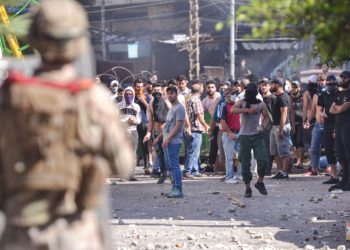It began with piles of rotting trash – and an angry crowd shouting, “You Stink!” Moments later, the streets of Beirut were filled with tear gas as rubber bullets tore through the streets of the country’s capital and stung protestors as they decried the garbage crisis that had been going on for years.
It was the summer of 2015 – hot, sunny, and reeking with stench. As I watched the protests and the violent government reaction unfold before my eyes, I realized the story was far more than just about angry citizens reacting to gross incompetence and corruption by their officials.
I was also witnessing the birth of a new Sunni group with questionable extremist links called Hurras Al-Madinah – “Guardians of the City.”
Waiting for the outcome of the May 15 polls, this group may very well secure enough seats and legitimate political power to destabilize the country and perhaps even the broader region.
Hurras al-Madina Transformation
As a scholar who studies political violence and extremism in the Middle East, seeing Hurras al-Madinah transform from a fringe group to one commanding the allegiance of thousands has felt like watching an all too familiar rerun.
Based in Tripoli, the largest city in northern Lebanon and home to half a million Sunni Muslims, Hurras al-Madinah is expertly replicating the Hezbollah model so successful in the south, combining reliable social services and legitimate political activity with questionable connections.
How have the Guardians of the City been able to grow their membership so explosively? The reason may be those piles of rotting rubbish.
Hurras al-Madinah, backed and quietly assisted by Turkey, counted only 20 members in 2015 — but within days of the protests, it recruited hundreds of volunteers.
The group portrayed itself as the protector and guarantor of the well-being of Tripolitans, filling the gap left by a failing state. Hurras al-Madinah provided social and medical services, cleaned the streets, intercepted trucks smuggling fuel to Syria, and assisted the needy, among other activities.
True Agenda
Despite their substantial social efforts, it didn’t take long for Hurras al-Madinah’s true agenda to reveal itself – seeking political office.
During the October 2019 protests against Lebanon’s corrupt political elite, the group’s leadership called for support to revolt against the government to attract widespread support. Activists quickly mobilized volunteers, rallied protesters, secured an important location in Tripoli, and erected a stage for “free speech” while deciding which individuals and parties would be allowed to appear behind the scenes.
Those speakers included men who endorsed the extremist al Jama’ah al-Islamiyah, the Lebanese branch of the Egyptian Islamic Group that has been previously designated as a foreign terrorist organization by the United States.
There is speculation that Hurras al-Madinah may be an attempt by the Islamic Group to rebrand itself in Hezbollah’s model and earn support among the population for its public works.
In a revealing exchange, a former leader of the Islamic Group discussed Hurras al-Madinah with me in 2020, going so far as to call the group’s members “his children.”
Even more damming, Hurras al-Madinah’s leadership also has been connected to Jund Allah, an armed Islamist group that has become less relevant following the end of the Lebanese civil war in 1990.
They are also linked to jihadi Shaykh Tariq Mirchi, who was indicted for a terrorist attack against the Lebanese Army on August 13, 2008. Mirhi served 15 years in prison but retained significant support in Tripoli. Released in 2020, Mirhi has opened a grocery store branded as a charity but serves as a platform for recruitment.
Lebanon’s Election
With the Lebanese voting for a new parliament, candidates affiliated with Hurras al-Madinah stand a good chance of winning, bringing their questionable extremist connections even closer to power in what is already a turbulent Middle East.
The aftershocks of a long-forgotten garbage strike may well shake Lebanon, the Middle East, and the wider world.
It is time for US policymakers to increase funding for programs that focus on governance and social services for vulnerable populations. There is a need to build the capabilities of the countries in the Middle East to prevent the further rise of new groups and diminish the reliance on them.
Disclaimer: The views and opinions expressed here are those of the author and do not necessarily reflect the editorial position of The Globe Post.

